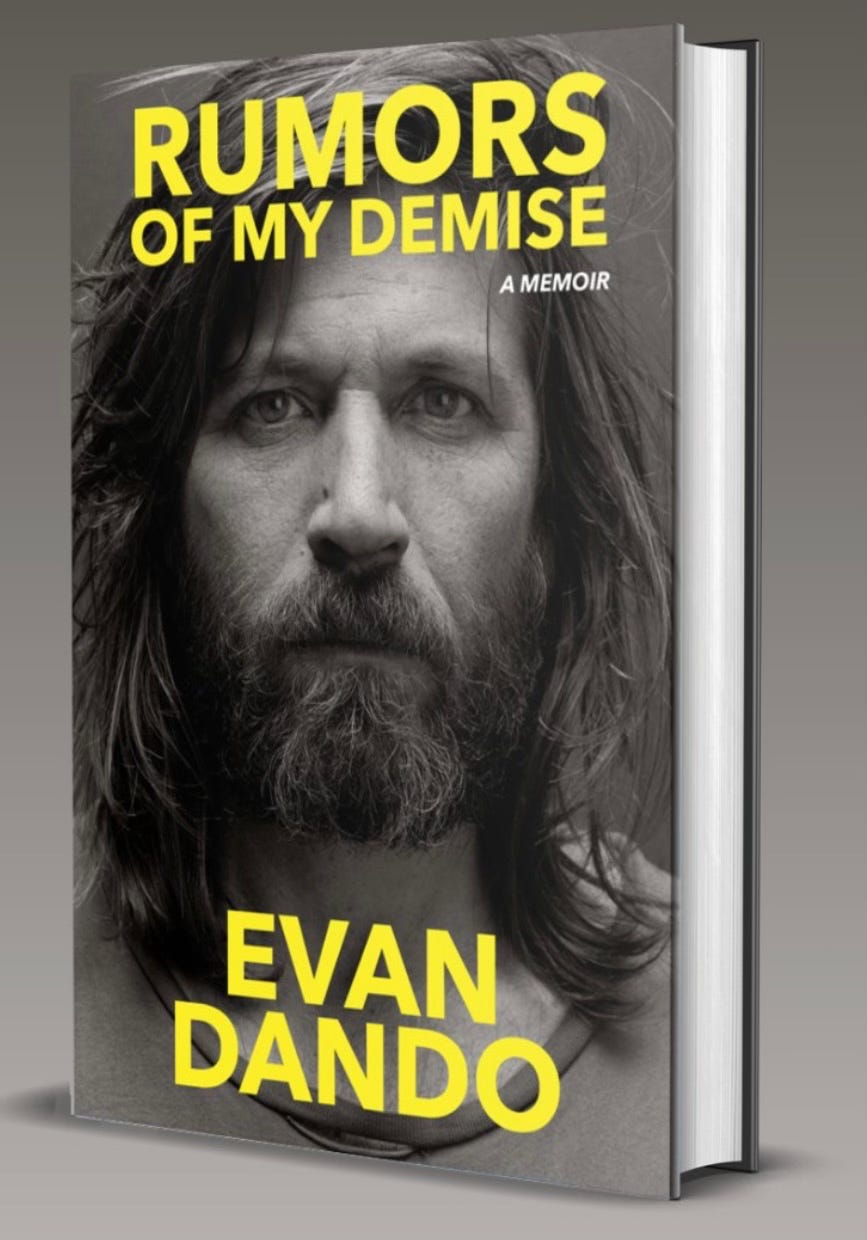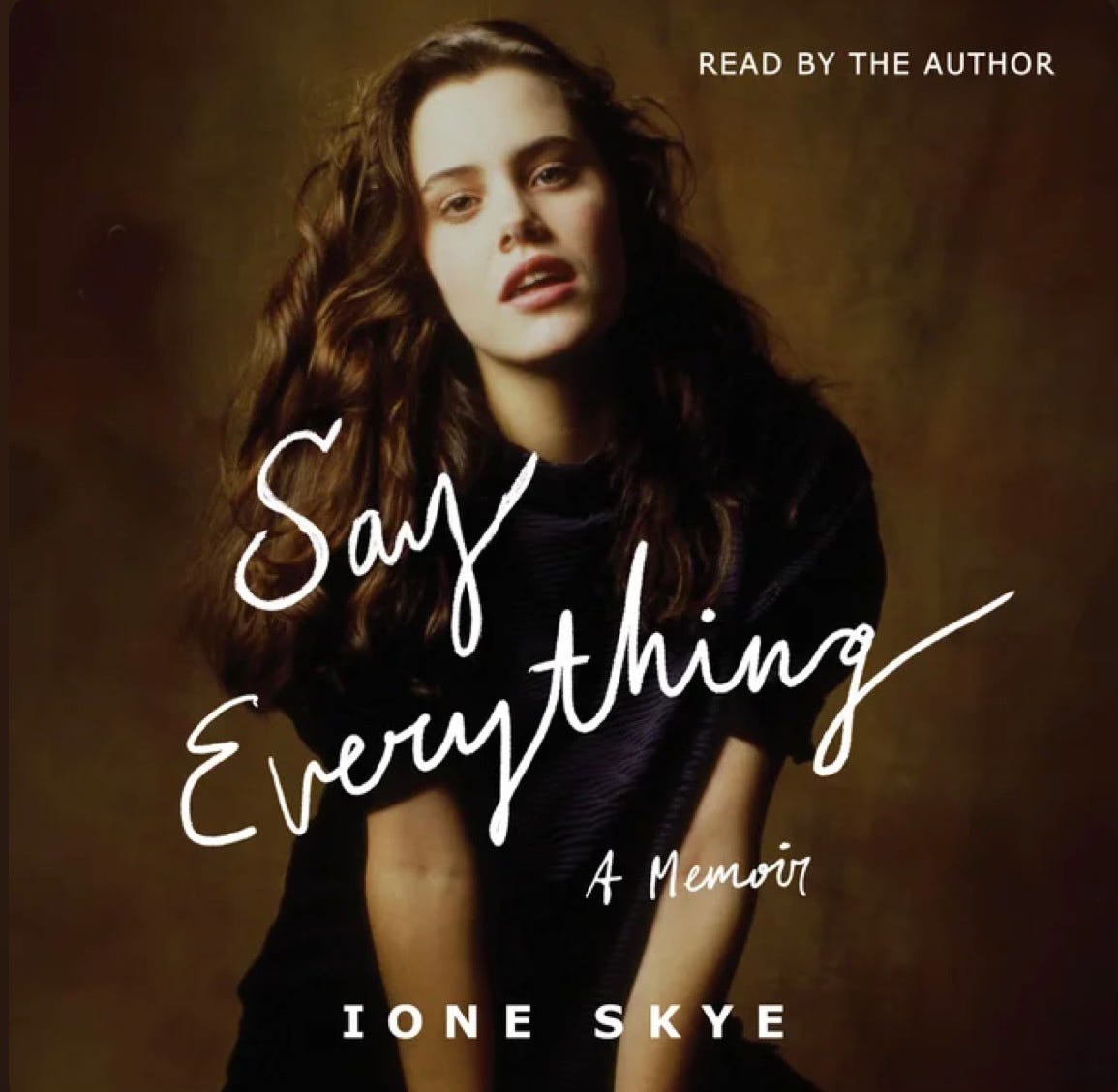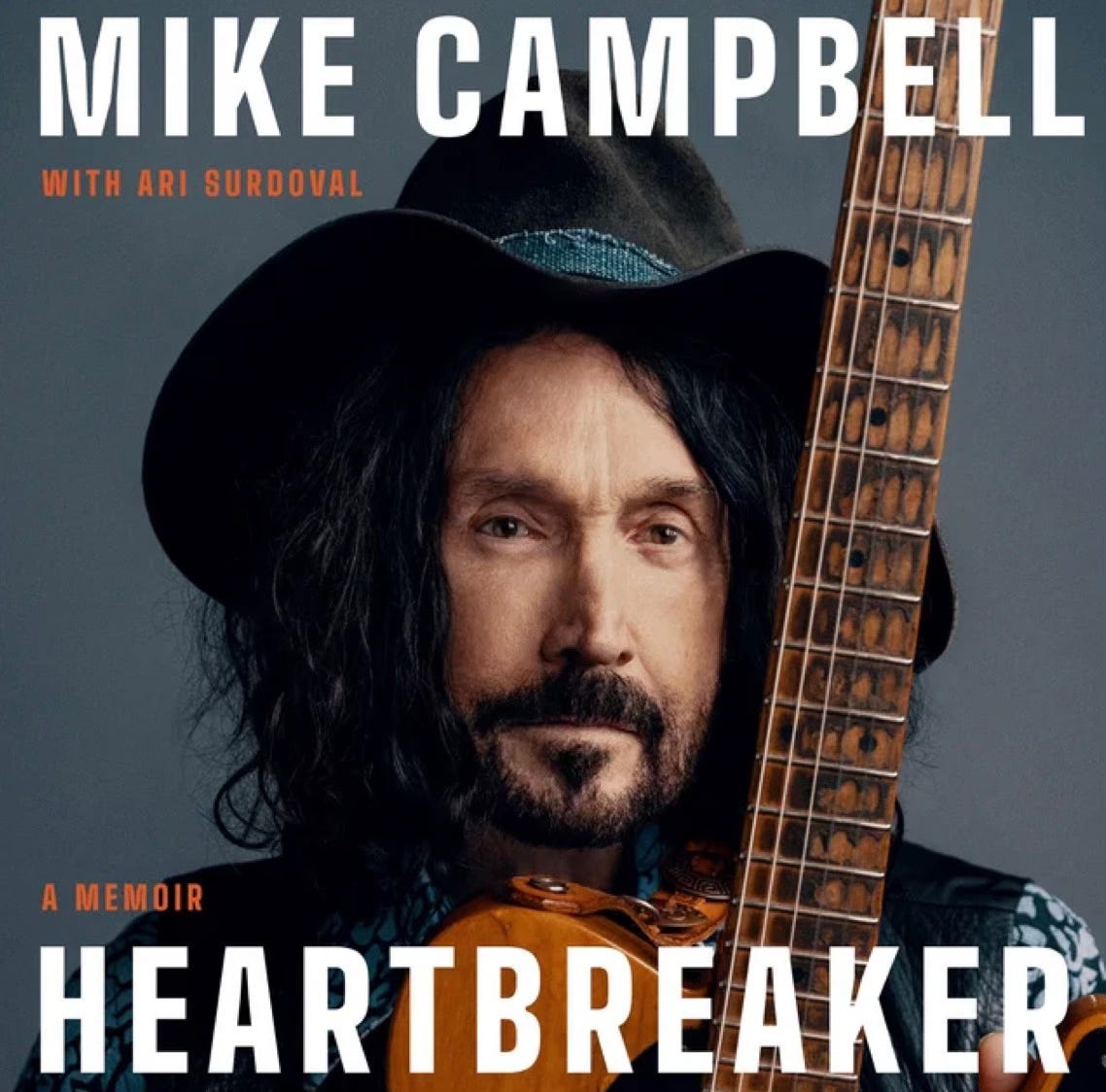
“It’s all connected.” That’s what my law partner Robert Meitus always says. I don’t know if it’s a longtime catch phrase of his or a more recent development. I’ve started saying it too. He’s right - is all connected.
Robert and I have many personal points of connection and contacts in common. We’ve known each other casually for over a decade; but even before we knew each other, our back stories intertwine in a rather cosmic way. It’s been pretty easy to merge our practices, because our work and clientele are similar and complementary. We’re similar but with key differences that become valuable from time to time. Maybe “It’s all connected” can be our slogan. We didn’t even need to spend tens of thousands to hire a consultant to make up a slogan for us (although it sounds like something a marketing consultant would think up).
If you spend decades in an industry as each of us has, you begin to understand that the community is just a bunch of overlapping circles with many common points of connection. Eventually everyone is one degree removed, if that. You hire seasoned professionals within an industry for their experience, but also for their connections, their ability to see the forest and the trees. As a student of the industry and the culture, I’m fascinated by these connections that arise again and again. Chance meetings and coincidences happen because our world becomes smaller through connectedness. You could trace those points of connection back to Minor Threat or The Beatles or Hank Williams or the dinosaurs (or at least Dinosaur Jr.).
I’ve read so many books by musicians and music people, it’s endlessly fascinating to me. Stories are connected to stories, and to larger narratives and ideas. It’s my favorite genre, the rock memoir. They contain multitudes. They’re entertainment but also an education, a way to expand your understanding of the universe of connections within music. Remember, music is a world within itself. And when will Stevie Wonder write a memoir?
I have a famously good narrative memory. I’ve consulted on several different rock memoirs, providing my memory of events. My dear friend Evan Dando has an incredible memory. “The tape’s always rolling,” he likes to say. But he still came to me when he needed to remember our adventures on tour in the 80s. I remember everything. Someday I’ll write my own, that’s why I write this Substack. Someday I’ll write my own; I just have to do a bit more living first to make it more interesting and worth reading.
My grandmother used to call soap operas her stories. She’d quickly wrap up whatever we were doing after lunch and say, “That’s it, I’m done - my stories are about to start.” Then she’d be glued to the television for a couple hours. If memory serves, she was loyal to As The World Turns. Well, rock memoirs are my stories. Characters weave in and out of different narratives, they show up in unexpected places. I hear stories in my own life, from all these legendary people you meet in Nashville. I read stories about my childhood heroes and I read them about my actual friends. The more rock memoirs you read, the more connections reveal themselves.
Spotify has been bad for enabling my rock memoir addiction. So many of them are available on the platform - soon I’ll run out and I’ll have to recycle ones I’ve already read. If you’re a premium subscriber, you get approximately one audiobook per month for free. You pay for extra time. As a high functioning addict, I “read” about one per month in addition to the old fashion books I read (about one per month, which I try to vary to include other genres). I’ve read books by artists for whom I don’t even care about their music. I’ve only paid for extra time once, and that’s because I wanted to write a Substack about whatever it was I was reading.
I’ve given up on them after a few minutes when they feel inauthentic or emotionally distant or - especially - if the narrator sucks. I’ve abandoned them halfway through when I lose interest in the story. I’ll bail without a second thought if a professional voice actor mispronounces a word that reveals they’re not familiar with the subject matter. I lasted less than five minutes with the new, acclaimed Bangles biography and decided to read the book due to wildly distracting narration. I’ll hang in there with the author as narrator even if they’re kind of bad at it. Lucinda Williams comes to mind: sloppy, inconsistent narration, patchy audio quality, but I just love her accent and the sound of her voice.1She’s the right person to tell her story. If it’s a first-person narrative, the author is almost always the best narrator.
Right now I’m reading Fahrenheit 182 by Mark Hoppus of Blink-182. I don’t know the band’s music, and the book hasn’t made me want to make a playlist and listen. Still, I really enjoyed Hoppus’s story. I related with his broken home, latchkey childhood and escape through music because - there you go - it’s all connected. All hardcore kids share DNA.
I’ve read so many of these in the past few years, I thought I’d highlight a couple of books I particularly enjoyed that illustrate the interconnectedness of music communities. I recommend these reads - each READ BY THE AUTHOR.
Say Everything, A Memoir: Ione Skye
I wish I’d written this right after reading Say Everything when it came out a couple months ago. I should have taken notes so I could remember more of the things I loved about this book. But I absolutely did love it.
Say Everything doesn’t technically qualify as a rock memoir because Ione is an actor not a musician. Nevertheless, it’s at least as deep into 80s and 90s music as it is into the movie business. I read this one immediately upon its publication because I knew it would intersect with people I know and other stories I’ve read. I don’t know Ione but we’ve met a couple times, I’ve been to her home. Her husband of nearly 20 years, Australian singer/songwriter Ben Lee, is an old friend of mine whom I’ve known since the early 90s. We toured together and became good friends. Ben sang at my wedding in 2000, then invited me to their wedding several years later. Had it not required a week in India, we definitely would have gone! They seem to me to be a charmed couple, always radiating love and positivity.
Speaking of reading memoirs by musicians whose music I don’t really care about, Say Everything reminded me that I’ve read two different memoirs by members of Red Hot Chili Peppers, Flea and Anthony Kiedis. I really can’t listen to Kiedis’ singing voice, but the stories are fascinating. Kiedis was Skye’s troubled junky boyfriend in the 80s. It’s wild to read each account of their relationship. Their accounts line up with brutal honesty. I may not love RHCP as a band, but their story is a truly epic tale for the ages, full of fascinating characters. Including Ione Skye!
I’ve also read multiple books that feature Skye’s ex-husband, Adam Horowitz (Ad Rock from The Beastie Boys), including Beastie Boys Book (a great audiobook with multiple narrators) and the truly excellent Rebel Girl by Kathleen Hanna (brilliantly narrated by the author). There are so many familiar narratives, characters, and anecdotes from other books I’ve read. I had to rack my brain to remember where I’d read this one insane anecdote about hanging Kiedis’s degenerate, drug crazed father in Michigan. Finally, I remembered that it’s in Mark Lanegan of Screaming Trees’ brutal addiction memoir, Sing Backwards and Weep. Amazing but not for the feint of heart.
Say Everything is beautifully written and narrated by Ione. Her 80s and early 90s experiences at the absolute ground zero of pop culture are fascinating. It made me rewatch both The River’s Edge and Say Anything - both of which hold up very well. She charts her path from flavor of the moment ingenue to grown-up working actor, navigating the pitfalls of one high-profile relationship after another along the way. It’s one of the most personal and authentic narratives I’ve read.
One caveat is that if you idolize Donovan, consider skipping this one. I disliked his character so viscerally that I took the time to watch that scene in Don’t Look Back where Bob Dylan humiliates Donovan. I’d always found that scene hard to watch. But now I wanted to watch him squirm because he’s a negligent, deadbeat father.
If there’s one consistent lesson in the rock memoir genre, it’s that narcissistic celebrities make shitty parents. I have, however, witnessed first-hand that Ione and Ben are wonderful, all-in parents in addition to being ambitious artists. They’re one of my favorite Substack follows and podcasts, Weirder Together. Even though I’ve barely met her, it made me feel angry and defensive when people mistreated Ione in the book. Her character inspired loyalty. I rooted for her through adversity, even though I knew the story had a happy ending.
Heartbreaker: A Memoir, by Mike Campbell with Ari Surdoval
I already know I’ll read Heartbreaker a second time. I was so bummed when it ended. I simply couldn’t believe the depth of memory and clarity of narrative. Then I listened to an interview with co-writer Surdoval about the process of writing Heartbreaker and - no shade to Campbell - it made a little bit more sense. Surdoval interviewed numerous first-hand participants, including Heartbreakers Stan Lynch and Benmont Tench and Mudcrutch guitarist and co-founder Tom Leadon (brother of original Eagle Bernie Leadon). He spent countless hours with Campbell; however, the manuscript included input from many individuals close to the story.
It’s disappointing there isn’t a proper Tom Petty memoir. It’s even much more disappointing that we lost one of the great American artists at such a young age (fentanyl has taken so much from us). I loved Warren Zanes’ book, but it wasn’t in Petty’s voice. This is as close as it gets to the definitive Mudcrutch/Heartbreakers story.
Gainesville in the 60s wasn’t any sort of high-profile music scene. Nevertheless, it is wild how many major musicians passed through. For example, Don Felder of Eagles is from Gainesville. Felder’s a few years older than Petty and Campbell; in fact, he taught Petty guitar at a local music store. I’ve read Felder’s memoir because of course I have - I’ve read pretty much every Eagles and Eagles-adjacent book. It’s like reading about the Roman Empire, come on. Felder started playing in bands in the early 60s. One of his early Gainesville bands included Steven Stills. His best friend and country music mentor was his future Eagles bandmate Bernie Leadon. Leadon’s younger brother Tom formed Mudcrutch with Campbell and Petty. It’s all connected!
It’s all connected, that is, between Gainesville and Los Angeles in the 1970s. Mudcrutch had the good fortune to be discovered by one of the great producers and A&R men in history, British expat Denny Cordell. I’ve become increasingly fascinated with Cordell as he’s appeared in so many books I’ve read on British rock in the 60s. And - you guessed it - I’ve read most of them. Cordell was mentored by the great Chris Blackwell, founder of Island Records, and featured prominently in Blackwell’s wonderful memoir The Islander. He worked at Island alongside Joe Boyd, and therefore he’s all over Boyd’s classic White Bicycles: Making Music in the 60s.
Cordell produced The Moody Blues and Procol Harum, and Joe Cocker before moving to Tulsa to form Shelter Records with Leon Russell, where he signed JJ Cale, Phoebe Snow, and out of Shelter’s Los Angeles office, Tom Petty and the Heartbreakers. I first learned about Cordell through his son, Tarka Cordell, one of Evan Dando’s best friends. I knew Tarka through Evan for years, and I’d always heard his dad was some music business big shot. Then eventually I made the connection, started reading about all these heroic figures. Sadly, Tarka passed away in 2008, before I’d made all the connections to appreciate the greatness of Denny Cordell.
Heartbreaker covers a remarkable amount of ground. There are so many incredible business stories, like Petty cutting Cordell loose once he understands the value of his music publishing. Or Irving Azoff and his team at MCA declaring Full Moon Fever a hit-free waste of time. Or Stan Lynch facing off against legendary manager Elliot Roberts to challenge the notion that Tom Petty should make more money from shows than each individual Heartbreaker, with low-key Campbell eventually reminding his bandmates they had a pretty good situation, rocking side-by-side with the greatest songwriter of a generation.
The heart of the book, which I won’t try to recount, is the poignant story behind the creation of Don Henley’s Boys of Summer, which is co-written by Campbell. It’s such an unlikely and beautiful story that it brought tears to my eyes. It’s just one unbelievable coincidence after another. I’ve always loved that song; the story made me love it even more.
Campbell is the narrator, and he’s quite good. He’s got this laid-back, laconic style that’s half surfer and half Southern working class that’s nearly identical to Tom Petty’s speech patterns. It’s the perfect voice to tell his story. There’s a moment towards the end of the book, describing the moment he learned his best friend Tom Petty had passed, where his voice cracks and he fights tears. It’s the most emotional and moving moment in my lifetime of audiobook consumption.
I’ve made a list below of some of my favorite recent rock memoirs and biographies. Let me know which ones you’ve enjoyed. I’m going to stop worrying whether I’m famous or interesting enough to write my own, and instead focus on the universe of connections I’ve experienced in my career. Which I hope and expect is only beginning.
Honorable Mention (2024-25 reads)
Geddy Lee - My Effin’ Life
Peter Wolf - Waiting on the Moon: Artists, Poets, Drifters, Grifters, and Goddesses
Dave Grohl - The Storyteller
Geezer Butler - Into the Void
Chris Franz - Remain in Love: Talking Heads, Tom Tom Club, Tina
Paul Rappaport - Gliders Over Hollywood
Steve Wynn - I Wouldn’t Say It If It Wasn’t True
Kathleen Hanna - Rebel Girl
Chris Blackwell - The Islander
Chris Hillman - Time Between
Richard Russell - Liberation Through Hearing
Flea - Acid for the Children
Ted Templeman - A Platinum Producer’s Life in Music
Kathy Valentine - All I Ever Wanted
Jim Rooney - In It for the Long Run: A Musical Journey
Bruce Springsteen - Born to Run
Joe Boyd - White Bicycles: Making Music in the 1960s
Mark Hoppus - Fahrenheit 182
It’s a good one, too, Don’t Tell Anybody The Secrets I Told You.




Great post. I absolutely cannot wait for your full story one day. I went to college and was a college DJ during the Blake Babies/Dinosaur Jr. days and was in Boston all the time to see shows (I went to UNH). I’m sure your full telling will be a great read!
Great read, John -- thanks for the list. I'm excited to get to Campbell's book soon.
An underrated rock memoir is So You Wanna Be a Rock & Roll Star: How I Machine-Gunned a Roomful Of Record Executives and Other True Tales from a Drummer's Life by Jacob Slichter, the drummer in Semisonic. It's a fun read and worth it just for the details of how "Closing Time" became such a massive hit.